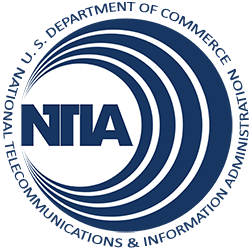The Critical Role Broadband Plays in Today's Economy
This week I had the opportunity to participate in a panel discussion hosted by the National Organization of Black Elected Legislative Women, or NOBEL, that examined how broadband is helping to address many of America’s most pressing challenges.
A robust broadband infrastructure is critical for America to remain competitive in the 21st century. Broadband provides a foundation for innovation, job creation and economic growth. Broadband is also transforming healthcare by enabling patients in rural areas to consult with medical specialists hundreds of miles away. It is opening doors in education by allowing students to take online classes at universities across the country. And it is changing the way we communicate, form personal connections, access information, shop and conduct many everyday transactions.
The Obama administration is working to ensure that more Americans have the resources and skills to share in these benefits and opportunities. This is particularly critical in today’s job market, since many job openings are posted only online and since digital literacy skills are a requirement in many workplaces.
One highlight of the administration’s work in this area is the Broadband Technology Opportunities Program, or BTOP, a Recovery Act program administered by the NTIA that is investing nearly $4 billion in roughly 230 projects to expand broadband access and adoption across the country. These projects are building networks in rural America and other places where existing systems are inadequate, and connecting schools, hospitals and other vital community anchor institutions. They are opening computer centers in schools, libraries and other public buildings to provide broadband access for people who want to go online but lack the resources at home. And they are teaching computer and digital literacy skills, providing online job search and resume writing assistance, and even training people for technical jobs in the information-age economy.The NOBEL forum gave me a chance to highlight the valuable work of some of our BTOP projects. For example, the Miami-Dade County Public School System is providing digital literacy training, discounted computers and subsidized Internet access to students at 38 low-income schools. The project is not only bringing students themselves online, but also connecting their families and providing digital literacy training for parents.
The Georgia Partnership for TeleHealth is expanding its telemedicine program in 91 of the state’s poorest counties so that low-income rural Georgians don’t have to drive hours to consult with medical specialists.
And the California Emerging Technology Fund, or CETF, is providing computer, digital literacy and workforce training to low-income communities and other vulnerable populations. Several partners in the project are using Recovery Act funding to train clients in information technology skills and place graduates in IT positions. In fact, CETF reports that more than 1,000 people are now working in information and communications technology jobs, with starting salaries of $40,000 to $60,000 a year, because of the Recovery Act investment.
I would like to thank NOBEL for recognizing the critical role that broadband plays in today’s economy and for its work to ensure that no one is left behind in the digital age.
